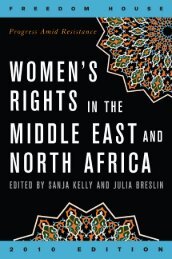Women and Politics in the Third World
Women and Politics in the Third World
Women and Politics in the Third World
Create successful ePaper yourself
Turn your PDF publications into a flip-book with our unique Google optimized e-Paper software.
WOMEN AND THE STATE IN THE THIRD WORLD 27<br />
Fem<strong>in</strong>ists <strong>and</strong> hostile territories<br />
Both political science <strong>and</strong> development studies were <strong>in</strong> <strong>the</strong> early days hostile<br />
territories to women. While <strong>in</strong> political science issues of gender were ignored,<br />
<strong>and</strong> even now are only patchily <strong>in</strong>troduced, <strong>in</strong> development studies <strong>the</strong> case has<br />
been different. While fem<strong>in</strong>ist <strong>in</strong>terventions <strong>in</strong> development studies ensured that<br />
issues of gender were present (especially <strong>in</strong> <strong>the</strong> form of critique) <strong>in</strong> its discourse as<br />
early as <strong>the</strong> 1970s, <strong>the</strong> policies <strong>and</strong> politics of development that arose from<br />
debates with<strong>in</strong> development studies show less gender awareness (see also Waylen<br />
<strong>in</strong> this volume). Fem<strong>in</strong>ists have had anxieties about <strong>the</strong> ways <strong>in</strong> which women<br />
have been ‘added on’ to <strong>the</strong> projects <strong>and</strong> discourses of politics <strong>and</strong> development<br />
ra<strong>the</strong>r than any reformulation of <strong>the</strong> central issues addressed by <strong>the</strong>se discipl<strong>in</strong>es <strong>in</strong><br />
<strong>the</strong> light of fem<strong>in</strong>ist contributions <strong>and</strong> debates (see Pankhurst <strong>and</strong> Pearce,<br />
Chapter 3 <strong>in</strong> this volume). In particular <strong>the</strong>se have centred around <strong>the</strong> question of<br />
<strong>the</strong> state, a key concept <strong>in</strong> political science that evokes deep suspicion, anger,<br />
fear, <strong>and</strong> hostility among fem<strong>in</strong>ists.<br />
Similarly, <strong>in</strong> development studies, while fem<strong>in</strong>ists have engaged vigorously <strong>in</strong> a<br />
critique of its primary concerns, <strong>the</strong>re too we f<strong>in</strong>d that <strong>the</strong> central question —this<br />
time of <strong>the</strong> developmental state—has rema<strong>in</strong>ed largely unaddressed. This<br />
suspicion of <strong>the</strong> state has more recently been buttressed by <strong>the</strong> development of poststructuralist<br />
explanations of power. Indeed, s<strong>in</strong>ce <strong>the</strong> 1970s, <strong>the</strong> concept of <strong>the</strong> state<br />
has been so reduced <strong>in</strong> status that its very existence has been brought <strong>in</strong>to<br />
question. ‘Where <strong>the</strong> concept rema<strong>in</strong>s <strong>in</strong> everyday use, it is used descriptively,<br />
mostly by <strong>the</strong> “practitioners” of social policy <strong>and</strong> social welfare’ (Pr<strong>in</strong>gle <strong>and</strong><br />
Watson 1992: 54–5). However, dur<strong>in</strong>g <strong>the</strong> 1970s <strong>and</strong> 1980s <strong>the</strong>re was also a<br />
grow<strong>in</strong>g sense of <strong>the</strong> power of <strong>the</strong> state as <strong>the</strong> welfare state became more<br />
important <strong>in</strong> <strong>the</strong> lives of <strong>in</strong>dividuals—regulat<strong>in</strong>g, def<strong>in</strong><strong>in</strong>g, provid<strong>in</strong>g <strong>and</strong><br />
monitor<strong>in</strong>g. <strong>Women</strong> began to enter <strong>the</strong> arena of local politics <strong>and</strong> legal dispute <strong>in</strong><br />
order to represent <strong>the</strong>ir own <strong>in</strong>terests (Pr<strong>in</strong>gle <strong>and</strong> Watson 1992).<br />
There have developed over a period of time two very different approaches to<br />
<strong>the</strong> question of <strong>the</strong> state. Historically, both have roots <strong>in</strong> <strong>the</strong> experience of<br />
women’s movements <strong>in</strong> different contexts. In countries with strong class<br />
affiliations <strong>and</strong> a tradition of class-based political action like Brita<strong>in</strong>, fem<strong>in</strong>ist<br />
writ<strong>in</strong>g was dom<strong>in</strong>ated by <strong>the</strong> Marxist analysis of <strong>the</strong> state as an oppressive<br />
<strong>in</strong>strument of <strong>the</strong> rul<strong>in</strong>g (capitalist) class. Marxist fem<strong>in</strong>ists added <strong>the</strong> ‘women<br />
question’ to <strong>the</strong> class question <strong>in</strong> capitalist societies by emphasis<strong>in</strong>g <strong>the</strong> role of <strong>the</strong><br />
state as a mediator between <strong>the</strong> two different but complementary systems of<br />
patriarchy <strong>and</strong> capitalism (Eisenste<strong>in</strong> 1978; Wilson 1977). In countries with a<br />
strong tradition of welfare state politics, <strong>the</strong>re has been less resistance to deal<strong>in</strong>g<br />
with <strong>the</strong> state. In Australia <strong>and</strong> Sc<strong>and</strong><strong>in</strong>avia for example, a positive value has been<br />
placed on state <strong>in</strong>tervention, <strong>and</strong> <strong>the</strong> state has been more clearly seen as an arena<br />
for barga<strong>in</strong><strong>in</strong>g among <strong>in</strong>terests (see Hernes 1984). <strong>Women</strong>’s <strong>in</strong>terests have been<br />
regarded as one among o<strong>the</strong>rs, <strong>and</strong> fem<strong>in</strong>ists have <strong>in</strong>sisted that <strong>the</strong>y must be<br />
articulated with<strong>in</strong> that space. Not only <strong>the</strong> question of <strong>in</strong>terest articulation, but




